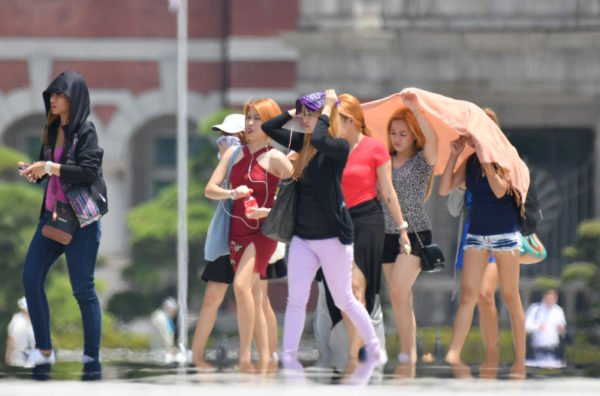Japan’s authorities have declared a heat wave sweeping the country a natural disaster, with at least 65 deaths recorded in the past week.
The country’s weather agency spokesman warned that “unprecedented levels of heat” were being seen in some areas.
According to emergency officials, more than 22,000 people have been admitted to hospital with heat stroke, nearly half of them elderly.
Forecasters say the heat wave shows no sign of abating.
On July 23, the city of Kumagaya reported a temperature of 41.1C (106F), the highest ever recorded in Japan.

India Heat Wave: Phalodi Records Country’s Hottest Day Ever
In central Tokyo, temperatures over 40C (104F) were also registered for the first time.
The Japan Meteorological Agency warned that temperatures of 35C (95F) or higher would continue until early August.
Spokesman Motoaki Takekawa said: “We are observing unprecedented levels of heat in some areas.”
He added that the heat wave was “a threat to life and we recognize it as a natural disaster”.
In Ibaraki prefecture, north of Tokyo, a 91-year-old woman was found collapsed in a field and later pronounced dead in hospital. In nearby Saitama two elderly women were found dead in their homes.
With less than half of Japan’s public schools equipped with air conditioning, government spokesman Yoshihide Suga said the summer holidays could be extended to protect pupils.
Yoshihide Suga told a news conference on July 24: “As a record heat wave continues to blanket the country, urgent measures are required to protect the lives of schoolchildren.”
People are being advised to drink plenty of water, to use air conditioning and to rest often.
In some cities, people have taken part in an event known as uchimizu, or “water ceremony” – pouring or sprinkling cold water on to the hot pavements in an attempt to cool them.
The heat wave closely followed torrential rain that caused severe flooding and landslides in the west of Japan.
